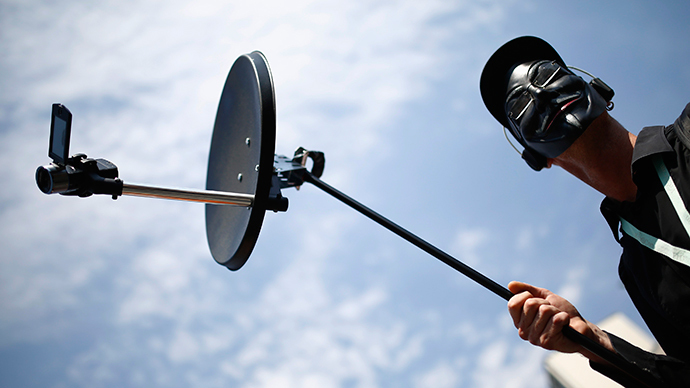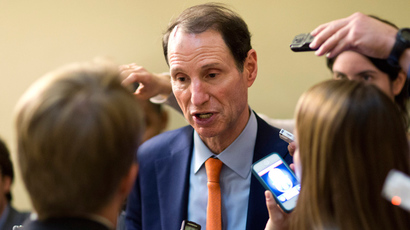‘Fight 215’ coalition unveils campaign to end Patriot Act spy law

Some of the largest digital rights groups in the United States have formed a coalition, unveiling a new campaign intended to urge Congress to keep from renewing the surveillance authority granted to the government under the post-9/11 Patriot Act.
The group — Fight 215 — announced its formation on Wednesday, less than two months before a June 1 deadline under which the Patriot Act and its provisions are scheduled to expire if lawmakers in Washington don’t reauthorize the law in the coming weeks.
Congress rushed to sign the Patriot Act into law shortly after the attacks of September 11, 2001, and the legislation has since been renewed by the US government as terrorism fears remain rampant. Section 215 of the Act allows federal authorities to compel companies across the US for sensitive user details including phone internet records according to secret documents disclosed by former National Security Agency contractor Edward Snowden.
In a statement on Wednesday, Fight 215 urged Americans to call up their congressional representatives and voice their concerns about the provision ahead of any potential efforts on Capitol Hill to reauthorize the rule and in turn allow the National Security Agency and the American intelligence community to keep scooping up user records in the name of counterterrorism.
34 civil liberties organizations and tech companies have joined forces to end the Patriot Act's mass surveillance: https://t.co/bS8CXXILWM
— EFF (@EFF) April 8, 2015
“Ending phone-record surveillance is the first step to reining in surveillance abuses by the NSA. Please join us in making this the year we stand for privacy and liberty, not secrecy and fear,” the group said.
The Electronic Frontier Foundation, American Civil Liberties Union and the Center for Democracy and Technology are among the 30-plus groups that has pledged their support to the Fight 215 movement, along with Human Rights Watch, Freedom of the Press Foundation, Sonic — a California-based internet service provider — and Snowden himself.
“The next 60 days are a historic opportunity to rein in the NSA, but the only one who can end the worst of its abuses is you,” Snowden says in a message published on the group’s website. “Call your representatives and tell them that the unconstitutional 'bulk collection' of Americans' private records under Section 215 of the Patriot Act must end."
Dear @NancyPelosi@SpeakerBoehner It's time to end the NSA's untargeted mass surveillance under the Patriot Act. https://t.co/IJbSa3JlZj
— Parker Higgins (@xor) April 8, 2015
Under the government’s (previously secret) interpretation of Section 215, federal authorities can compel any entities to turn over "any tangible things," so long doing as much could “protect against international terrorism or clandestine intelligence activities."
"We have not yet seen any evidence showing that the NSA's dragnet collection of Americans' phone records has produced any uniquely valuable intelligence,” Sen Ron Wyden (D-Oregon), one of the more vocal critics in Congress of the government’s surveillance programs, said in a statement released by the group.
On the other side of the aisle, Sen. Rand Paul (R-Kentucky), the recently-declared presidential hopeful, said the government’s use of Section 215 to monitor the records of innocent Americans is “an extraordinary invasion of privacy.”
After Snowden first disclosed documents concerning the government’s use of 215, US President Barack Obama said in March 2014 that “the best path forward is that the government should not collect or hold this data in bulk.” In the year since, however, Congress has failed to come up with a legislative fix — instead setting the stage for the Patriot Act to sunset in two months absent any proposals from the Senate or House.














